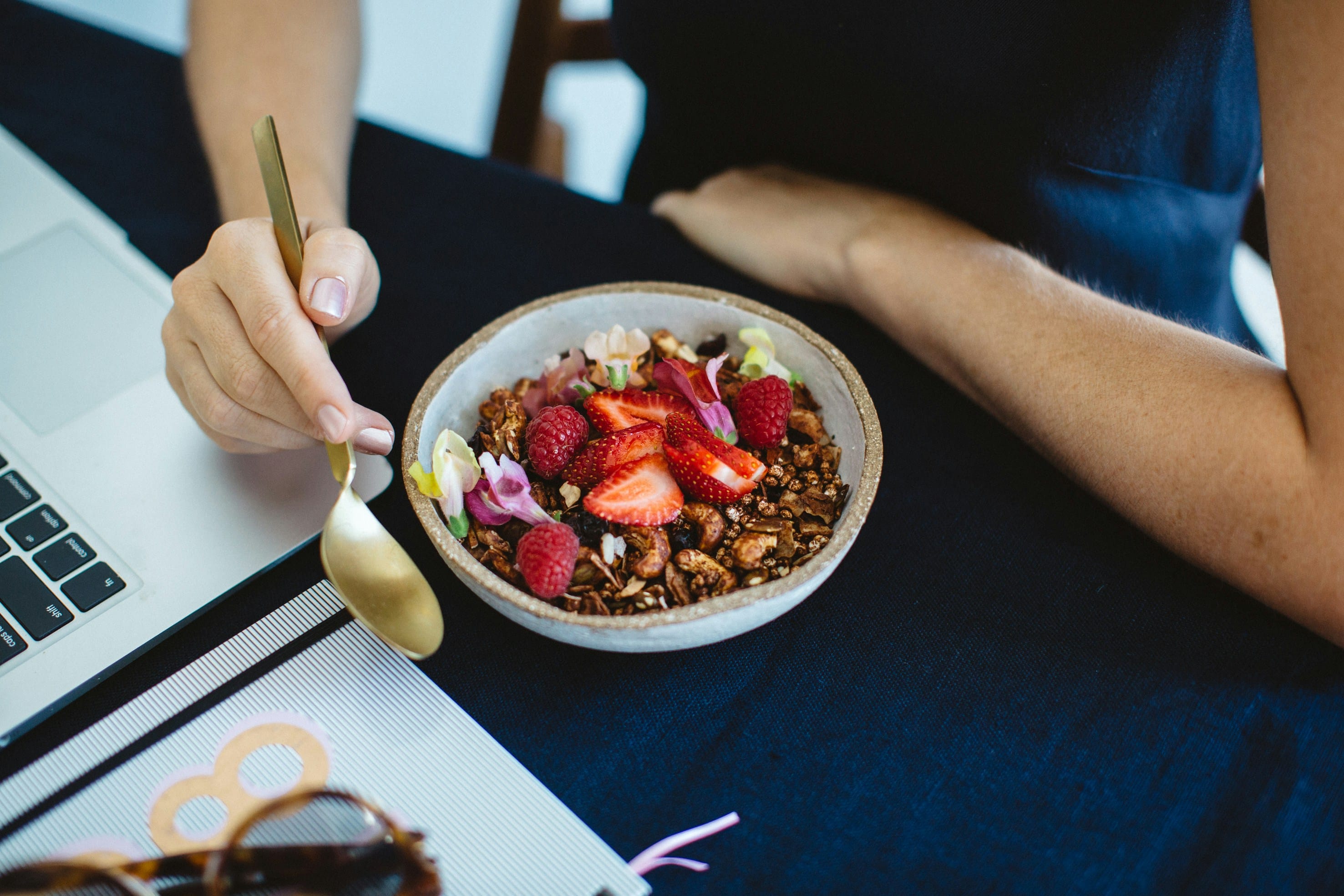It probably comes as no surprise that Americans love to consume unhealthy things—from energy drinks to junk food—but where do we draw the line? And when does it start to impact our day-to-day functions negatively? Furthermore, when does it start to impact our health and fitness goals negatively?
According to a health report conducted by Brown University: “Individual responses to caffeine vary, and these drinks should be treated carefully because of how powerful they are. Energy drinks’ stimulating properties can boost the heart rate and blood pressure (sometimes to the point of palpitations), dehydrate the body, and, like other stimulants, prevent sleep.”
The truth is, we all want explosive energy throughout the day. When we have more energy, we become more efficient, effective and ultimately feel like we can conquer anything. However, reaching for a natural source of energy over an energy drink won’t leave you feeling dehydrated or at risk of an unhealthy heart rate. So next time your clients are tempted to reach for one of their favorite energy drinks, help them to consider other options.
Without further ado, let’s explore a few energy drink alternatives you can share with your clients.
Green juices and smoothies
Whether you are on the juicing bandwagon or not, there’s no denying that it provides a number of vital benefits. In fact, according to Living Greens—a San Francisco–based juicing business—”[Juicing] rejuvenates the body mentally and physically.” In fact, the juices it creates is designed to increase energy levels and mental clarity, strengthen the immune systems and even diminish pain. But your clients don’t have to get juice delivered to their doors in order to reap the benefits. There are plenty of recipes available that specifically target our energy levels (in a good way).
Healthy carbohydrates
Despite what your clients may have heard, carbohydrates are not the enemy—at least not all of them are. With the right carbohydrates—that is, not the white, refined carbohydrates—your clients can improve their energy levels and athletic performance. The best carbohydrates to reach for are whole grains, fresh figs, blueberries, sweet potatoes and bananas, just to name a few.
{{cta(‘8c7c8cff-00e5-4cb0-844a-5352a5b5029f’,’justifycenter’)}}
Green tea
Just one cup of green tea can provide your body with antioxidants, which can reduce free radicals that can cause premature aging and diseases, such as cancer. Not to mention it does wonders to your endurance levels without the afternoon crash.
Water
One of the most readily available sources of natural energy is water. As a rule of thumb, you want to be sure that your clients are consuming enough water. And while the eight glasses a day can be left up for debate, becoming dehydrated can leave us all feeling fatigued, especially during and after a workout.
Daily vitamins
If your clients find their energy levels declining in the afternoon they could be missing something. In fact, even a balanced diet can sometimes leave your client’s lacking the right vitamins and minerals. Fish-oil capsules and vitamin B12 supplements are sufficient options for daily increased energy, as well as a number of other emotional and physical benefits.
A stroll around the block
According to researchers at WebMD: ” While it may seem as if moving about when you feel exhausted is the quickest route to feeling more exhausted, the opposite is true. Experts say that increasing physical activity—particularly walking—increases energy.” So if your clients still aren’t seeing results after that cup of green tea, encourage them to take a brisk walk on their lunch hour with a couple of colleagues.
{{cta(‘a7bb1718-22d3-4987-80f1-5e01154e492d’,’justifycenter’)}}



